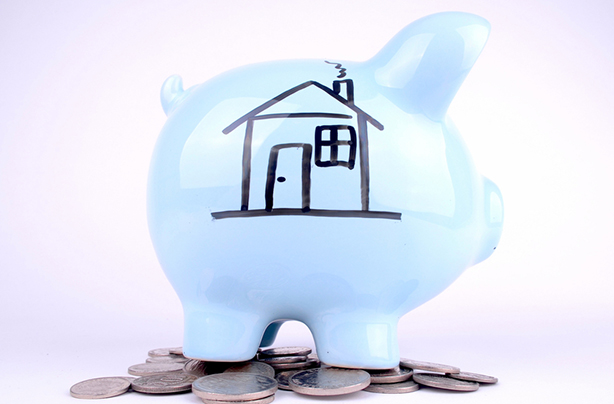Mortgage types explained: Which type of mortgage is right for me?
When choosing what mortgage to go for, it’s important to focus not only on on the interest rate and fees you’ll be charged, but also the type of mortgage that’s best for you

When choosing what mortgage to go for, it’s important to focus not only on on the interest rate and fees you’ll be charged, but also the type of mortgage that’s best for you.
While comparing different types of mortgages, remember to look at the fees for taking them out, the long-term costs and the exit penalties should you decide to leave the deal early.
Regardless of what rate you opt for, the main basis of your mortgage will be how you aim to repay the loan. There are essentially two options: repayment mortgages or interest-only mortgages.
Check the best mortgage rates available now
What are repayment mortgages?
With a repayment mortgage, you pay off a bit of your debt every month, as well as interest on the loan. Once the term is over, you do not owe any more money and the loan will have been cleared. In the early years of your mortgage term, as the debt you owe is larger, most of your monthly payments go towards the interest. But as the years go on and you chip away at your outstanding debt, most of the repayments you’ll make go towards paying off the debt.
Repayment mortgages pros
Repayment mortgages are normally considered to be the most straightforward type of mortgage, with the least risk involved. They are also much easier to get than an interest-only mortgage, especially for first-time buyers.
Repayment mortgages are also the only option that guarantees you’ll be debt-free at the end of the mortgage term. They also mean that - because you’re paying off more of your debt each month - once it comes to remortgaging, you’ll be able to get a better mortgage deal.
GoodtoKnow Newsletter
Parenting advice, hot topics, best buys and family finance tips delivered straight to your inbox.
Repayment mortgages cons
You will have to pay more than an interest-only mortgage each month as part of your repayment, because - don’t forget - you are also repaying some of your debt.
What are interest-only mortgages?
With an interest-only mortgage, each month you will pay off the interest on the money you have borrowed, but not the capital. Instead, once you come to the end of the mortgage term, you must repay the capital in full. The only way you can reduce the capital with an interest-only mortgage is to overpay each month, or to set up some savings to grow every month to repay the loan.
However, these mortgages are becoming much harder to get, with lenders concerned about homeowners being left with a huge debt at the end of the term with no way to repay it. In the past, many borrowers took out interest-only mortgages without ensuring they could pay off the capital at the end of the term, relying instead on the assumption that their properties would grow in value and they could sell or refinance them. Of course, this created issues when property prices fell, or stayed the same, so now lenders have moved away from interest-only mortgages.
Borrowers keen to take out one of these mortgages now have to show the lender how they can repay the mortgage at the end of the term, and have to prove that they have a credible repayment plan once it comes to paying back the loan.
Interest-only mortgages pros
They are often cheaper than a repayment mortgage, in the sense that the amount you pay every month is lower - although remember you are not paying off the capital.
Interest-only mortgages cons
Homebuyers need to prove that they will be able to repay the capital once it comes to the end of the mortgage term or you won’t be able to get this type of mortgage. If you do, but you don’t have the funds to repay the loan once it comes to the end of the term, you would have to sell your property unless you can remortgage.
Apart from these two clear-cut repayment models, there are further variations offering you different flexibilities, such as cashback mortgages and offset mortgages.
What are cashback mortgages?
When you take out a cashback mortgage, you are given some extra cash, which could be a percentage of the amount you’re borrowing or a fixed amount.
Cashback mortgages pros
It can be helpful to have some cash to start off with to help with the costs of moving, for example to pay for renovations or buying items for your new home.
Cashback mortgages cons
There is often a higher interest rate charged with cashback mortgages, so make sure you are doing your research properly so you don’t end up paying more in the long run.
What are offset mortgages?
Offset mortgages help you to clear your mortgage early by linking your savings account to your mortgage so that you only pay interest on the difference. You still make monthly repayments, but as your savings act as an overpayment, wiping out more of the interest every month, you can be mortgage-free sooner but still have access to your money if you need it.
They are also a popular choice for borrowers whose families can help them cope with their mortgage, as the savings account need not be that of the borrower, so the family’s savings can be put to good use, helping to reduce the amount on which interest is calculated, without having to actually give them money to reduce their mortgage.
Offset mortgages pros
As you are repaying your mortgage more quickly, it could cost you less overall.
If you use your savings to reduce your mortgage interest, you won’t pay tax on the revenue which would otherwise be earned on your savings.
You can get access to your offset savings easily, whereas on another type of mortgage, if you overpaid, you wouldn’t be able to get your money back.
It’s a popular way for families to help borrowers on the property ladder without actually having to give them money.
Offset mortgages cons
Offsets are normally at a higher rate than standard mortgages, so make sure you are getting a good enough deal before you opt for an offset mortgage.
If you are struggling to raise even a small deposit, guarantor mortgages can be an option.
Check the best mortgage rates available now
What are guarantor mortgages?
With a guarantor mortgage, someone other than the borrower will accept full responsibility for the borrower’s mortgage. The guarantor will give the lender confidence that the money they are lending will be paid on time and in full: essentially, agreeing to step in and cover repayments if the borrower fails to make them. This is obviously a big risk for the guarantor, but also for the bank, as the financial circumstances of the guarantor may change by the time the borrower defaults.
Guarantor mortgages pros
It can be a good way for parents to help out their children if they are struggling to put together a deposit and the parents are not cash-rich.
Guarantor mortgages cons
Guarantors are taking on a serious financial burden with no benefit to their own finances, and could risk losing their own homes if the worst should happen and the borrower was unable to keep up payments.
There are also many types of mortgages if you characterise them according to interest rates.
Trusted, informative, and empathetic – GoodToKnow is the ultimate online destination for parents. At GoodtoKnow, our mission is 'simple': we're trying to make sense of parenthood. On the site, you'll find everything you need for a happy, healthy family life. Our huge archive of content includes more than 18,000 articles and 1,500 how-to videos. These include expert-backed advice features on parenting, dealing with relationship changes after having a baby, self-care for mums and managing your family finances. We also feature tried-and-tested product reviews and buying recommendations for every stage of family life - from prams and Moses baskets to birthday gifts and top toys.
-
 Lifetime mortgages: What is a lifetime mortgage and are they right for me?
Lifetime mortgages: What is a lifetime mortgage and are they right for me?Heard a lot about lifetime mortgages - or reverse mortgages - but not sure what they're about? Read our guide to see if it's the right option for you
By GoodtoKnow
-
 Mortgage deposit: How much do I need to buy a house?
Mortgage deposit: How much do I need to buy a house?Saving for a deposit can be the most daunting element of buying a house, but remember that there’s no set amount you’ll need to put down
By GoodtoKnow
-
 Government to end Help To Buy mortgage scheme: How will it affect you?
Government to end Help To Buy mortgage scheme: How will it affect you?This week, the government announced that the Help To Buy mortgage guarantee scheme would be ending at the end of 2016.
By GoodtoKnow
-
 How to remortgage your house – and find the best remortgage deal
How to remortgage your house – and find the best remortgage dealRemortgaging is essentially switching what you owe on your current mortgage into a different mortgage product, either with the same bank or a different lender altogether.
By GoodtoKnow
-
 Buying a house: Everything you need to know as a first time homebuyer
Buying a house: Everything you need to know as a first time homebuyerBuying your first home is an extremely exciting time, but it can also be complicated. How much money will you need? What sort of mortgage should you opt for? How will stamp duty affect you?
By GoodtoKnow
-
 How to get a mortgage: An easy checklist for everything you need to do
How to get a mortgage: An easy checklist for everything you need to doRead our easy guide to demystify the mortgage process. Our step-by-step mortgage checklist will tell you everything you need to know about buying a home
By GoodtoKnow
-
 Mortgage rates explained: What to look out for when picking your mortgage interest rates
Mortgage rates explained: What to look out for when picking your mortgage interest ratesHow much interest rate should you be paying on your mortgage? We explain the different interest rates available for you
By GoodtoKnow
-
 Sell my house fast: How to sell your house quickly
Sell my house fast: How to sell your house quicklyThinking of selling your house or flat? Even if drastic home improvements are out of your budget, there are lots of cheaper ways you can make your home look more attractive to both the estate agents who come to value it and prospective buyers who come to view it. Read our top tips for selling your house... fast.
By GoodtoKnow